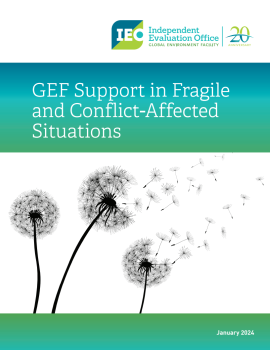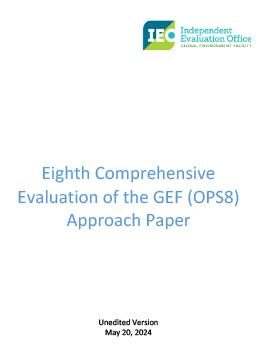This evaluation will examine whether, how, and to what extent GEF-supported projects are inclusive of historically marginalized groups—in particular people marginalized on the basis of gender (with a primary focus on women, but also girls and sexual and gender minorities), Indigenous Peoples and local communities (IPLCs), and other groups such as youth and persons with disabilities—and the effects of inclusion (or lack thereof). The evaluation will pay particular attention to the trends for inclusion of specific marginalized groups in GEF projects in fragile and conflict-affected situations (FCS), recognizing that FCS contexts are characterized by problems of marginalization and exclusion that are distinct from stable situations. Building on a recent evaluation of GEF support in FCS contexts (GEF IEO 2020), this evaluation will assess the approaches and relative prevalence of inclusion of marginalized populations in GEF projects generally, as well as specifically in FCS contexts. It will also consider the effects of inclusion of marginalized populations on project outcomes as well as socioeconomic co-benefits. The evaluation will approach the issue of inclusion from a combined perspective of capitalizing on opportunities (e.g., inclusion as improving project outcomes) and managing risks (e.g., risks to projects and to stakeholders).


